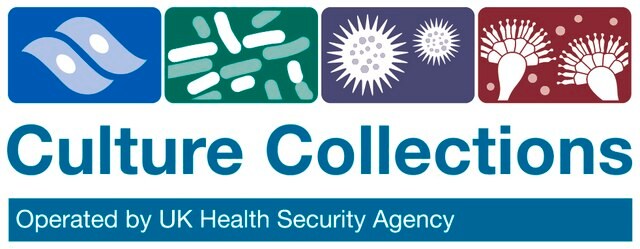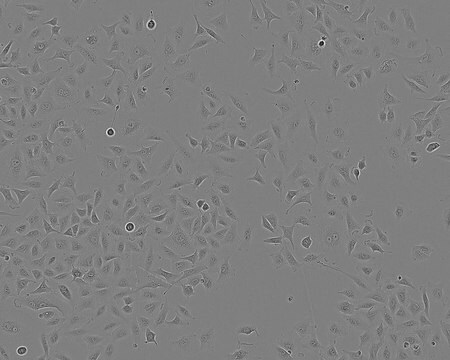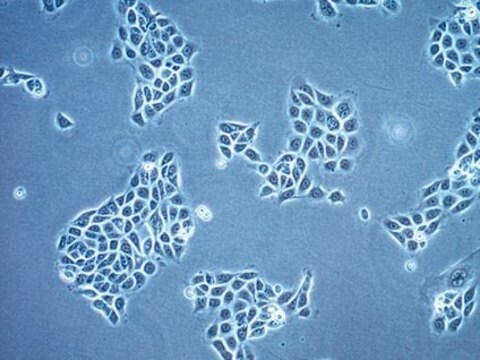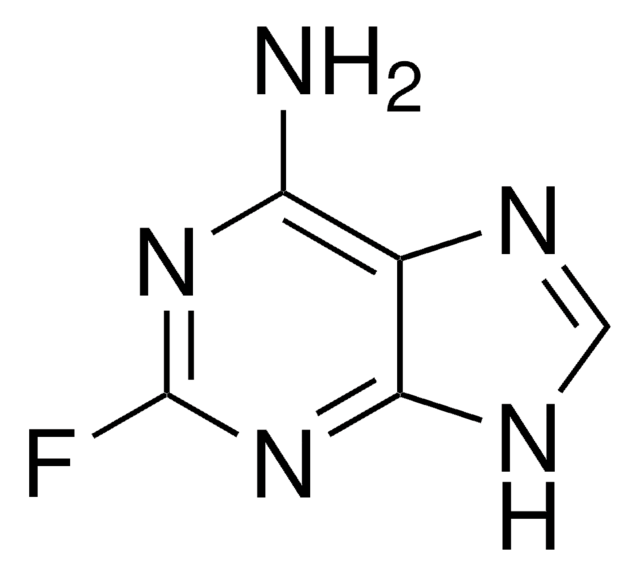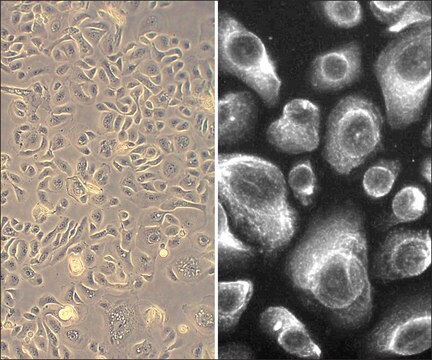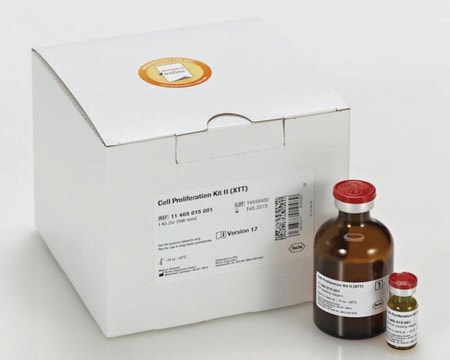94072246
RPMI 7932 cell line
94072246, human lung effusion, Epithelial-like morphology
Autenticatiper visualizzare i prezzi riservati alla tua organizzazione & contrattuali
About This Item
Codice UNSPSC:
41106514
Prodotti consigliati
product name
RPMI 7932 cell line,
Origine biologica
human lung (effusion)
Forma fisica
liquid
Modalità di accrescimento
Adherent
Cariotipo
Not specified
Morfologia
Epithelial-like
Prodotti
Plasminogen activator
Recettori
Not specified
tecniche
cell culture | mammalian: suitable
Malattie correlate
cancer
Condizioni di spedizione
dry ice
Temperatura di conservazione
−196°C
Origine della linea cellulare
Human pleural effusion from a patient with malignant melanoma
Descrizione della linea cellulare
Derived from the pleural effusion of a 36 year old female with malignant melanoma. Cell line produces plasminogen activator. This cell line was found to be indistinguishable from cell lines COLO 699N & COLO 738 by STR PCR DNA profiling. At ECACC the STR PCR profile of all stocks of this cell line match the profile of the original source material received at ECACC. However, it is not clear if the cell lines COLO 699N, RPMI 7932 & COLO 738 were originally derived from the same individual as the profiles suggest. The cell lines COLO 699N, RPMI 7932 & COLO 738 were received from the same depositor. If we are able to obtain clarification of the relationship between these cell lines this information will be updated.
Applicazioni
Tumourigenicity studies
Terreno di coltura
RPMI 1640 + 2mM Glutamine + 10% Foetal Bovine Serum (FBS).
Mantenimento delle subcolture
Split sub-confluent cultures (70-80%) 1:2 to 1:4 i.e. seeding at 3-6x10,000 cells/cm2using 0.25% trypsin/EDTA; 5% CO2; 37°C.
Altre note
Additional freight & handling charges may be applicable for Asia-Pacific shipments. Please check with your local Customer Service representative for more information.
Esclusione di responsabilità
RESEARCH USE ONLY. This product is regulated in France when intended to be used for scientific purposes, including for import and export activities (Article L 1211-1 paragraph 2 of the Public Health Code). The purchaser (i.e. enduser) is required to obtain an import authorization from the France Ministry of Research referred in the Article L1245-5-1 II. of Public Health Code. By ordering this product, you are confirming that you have obtained the proper import authorization.
Codice della classe di stoccaggio
10 - Combustible liquids
Classe di pericolosità dell'acqua (WGK)
WGK 3
Punto d’infiammabilità (°F)
Not applicable
Punto d’infiammabilità (°C)
Not applicable
Certificati d'analisi (COA)
Cerca il Certificati d'analisi (COA) digitando il numero di lotto/batch corrispondente. I numeri di lotto o di batch sono stampati sull'etichetta dei prodotti dopo la parola ‘Lotto’ o ‘Batch’.
Possiedi già questo prodotto?
I documenti relativi ai prodotti acquistati recentemente sono disponibili nell’Archivio dei documenti.
B K Bhuyan et al.
Cancer research, 46(4 Pt 1), 1688-1693 (1986-04-01)
Our interest in prostaglandins (PGs) as antitumor agents stemmed from the report of Bregman and Meyskens (Cancer Res., 43: 1642-1645, 1983) that PGA1, PGA2, and PGD2 inhibited colony formation by human melanoma cells obtained from fresh biopsies of melanoma patients.
B Sharma
Cancer research, 37(12), 4660-4668 (1977-12-01)
Tumor cell fractions isolated from tumor lines SH-3 (breast carcinoma) and RPMI-7932 (malignant melanoma) by differential centrifugations were capable of transforming lymphocytes into cytotoxic effector cells. Lymphocytes cultured alone in human AB plasma did not become cytotoxic to tumor cells.
Generation of cytotoxic lymphocytes against human tumor cells in vitro by various soluble microbial extracts.
B Sharma et al.
Journal of the National Cancer Institute, 63(2), 341-346 (1979-08-01)
C W Porter et al.
Cancer research, 54(22), 5917-5924 (1994-11-15)
Certain N-alkylated analogues of the natural polyamine spermine, such as N1,N11-diethylnorspermine (DENSPM), rapidly deplete intracellular polyamine pools by down-regulating the biosynthetic enzymes, ornithine decarboxylase and S-adenosylmethionine decarboxylase, and by potently up-regulating the polyamine catabolizing enzyme, spermidine/spermine N1-acetyltransferase. On the basis
J A Eisman et al.
Cancer research, 47(1), 21-25 (1987-01-01)
It has been demonstrated previously that several human cancer cell lines possess specific, high affinity receptors for 1,25-dihydroxyvitamin D3 [1,25-(OH)2D3, calcitriol] and that 1,25-(OH)2D3 and certain of its metabolites inhibit the growth in vitro of several human breast cancer and
Il team dei nostri ricercatori vanta grande esperienza in tutte le aree della ricerca quali Life Science, scienza dei materiali, sintesi chimica, cromatografia, discipline analitiche, ecc..
Contatta l'Assistenza Tecnica.